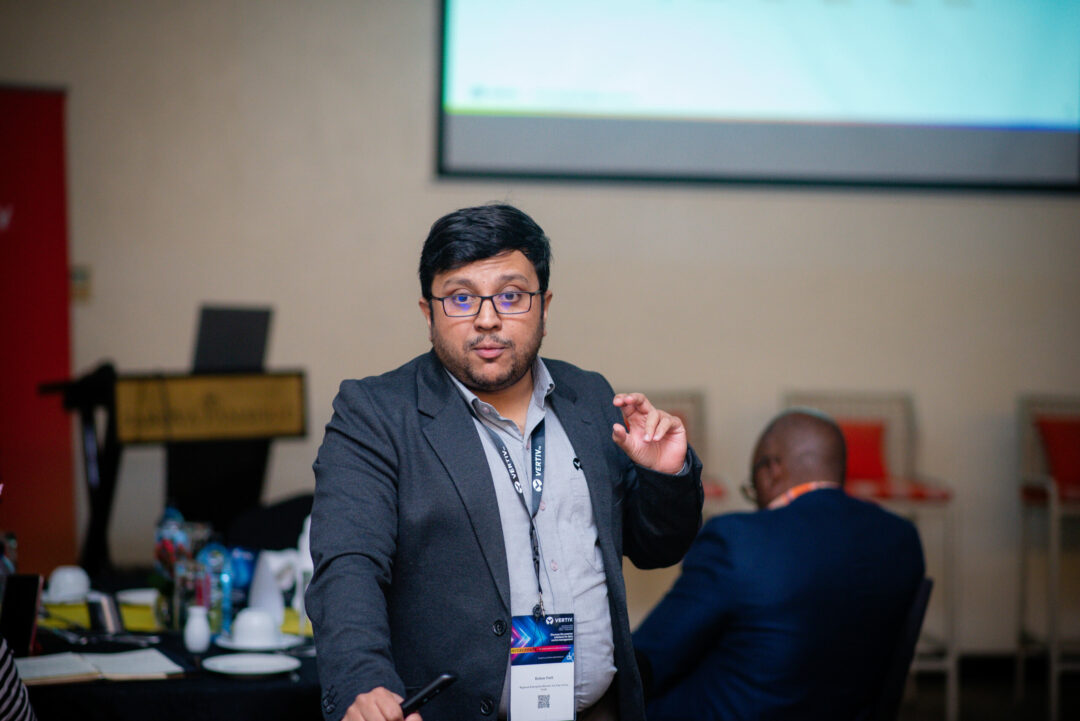advertisement
Vertiv Pegs Sustainability As Data Centre Future

As the number of internet users and IoT devices continues to rise as is the pressing need for Internet connectivity, stated Rohan Patil, Regional Expertise Director, Vertiv. “We expect a tsunami of data with over half a million internet users and 78,000 km of fibre connectivity or 524 terabytes coming into Africa,” he said, adding that cable connectivity has tripled over the past year.
Speaking at Vertiv’s Smarter Solutions for Data Centre Management breakfast at Sarova Panafric, the event unveiled a future where data becomes a necessity not only for businesses but also for individuals, particularly the tech-savvy digital natives who will inform the future of smart cities. “IT businesses will change, and CIOs need to prepare for what will happen five years down the line,” noted Rohan.
Modern data centres are tailored to specific needs, reducing congestion and enhancing service agility. They also suck up a lot of space, infrastructure and have a large environmental footprint. It means the tech industry needs to be more conscious of building green data centres and practising sustainable sustainability. Energy-efficient data centres, built on renewable energy, and with eco-friendly product design will determine the future.
advertisement
The adoption of smart solutions is believed to pave the way for seamless data management and enhanced customer satisfaction. George Munai, Distributor Manager for East Africa at Vertiv, stated, “When you deploy a smart solution, the outcome becomes very efficient. It’s crucial to manage your infrastructure effectively.”
With panellists delving into the creation of smart cities for future generations, Benson Makhale, Head of Banking Application, I&M Bank stressed the importance of sustainability in infrastructure development, foreseeing an AI-enriched integration. “I am looking at an IT infrastructure that is future-ready and expecting a lot of AI infusion and a lot of intelligence in the system.”
When constructing a data centre, making the right decisions is crucial, especially when expanding a micro data centre. These decisions include factors such as sustainability, the integration of solutions, and the adoption of AI to streamline operations. To which Munai further elaborates, “As more devices and systems become interconnected, technology advances and computing capabilities increase.”
advertisement
Another significant decision pertains to energy consumption and the choice between renewable and stored energy sources. Additionally, it involves ensuring seamless interoperability while considering the cost and speed of infrastructure deployment. “When evaluating traditional data centre designs, it’s essential to consider having the appropriate skill set, ensuring timely deployment, and assessing available space and capital investments,” he adds. Furthermore, maintaining consistency, continuity, and energy efficiency is critical in establishing a robust data management infrastructure.
Even as the panel emphasised the need to examine requirements and identify gaps while striving for future readiness, the current state shows that people are better prepared than ever before, having embraced the digital realm. The concept of smart cities also notes Gen Z, who will move into the smart cities currently under construction such as Konza Technopolis, quicker and user-friendly applications and will need mobile-friendly features and lifestyles.